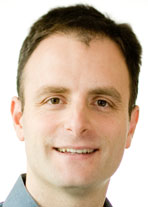Upcoming Webinar: "20 Years of Musical Genre Classification of Audio Signals"

Upcoming Webinar - 15 July 2020
Webinar Topic: "20 Years of Musical Genre Classification of Audio Signals"
Presenter: Dr. George Tzanetakis
Based on the IEEE Xplore® article "Musical Genre Classification of Audio Signals"
published in the IEEE Transactions on Speech and Audio Processing, November 2002
| Presenter: Date: Time: Duration: Register: Download: |
Dr. George Tzanetakis 15 July 2020 01:00 PM EDT (New York time) Approximately 1 hour Attendee Registration Original article will be made freely available for download on the day of the webinar, on IEEE Xplore® |

The IEEE Signal Processing Society would like to express our concern and support for the members of our global community and all affected by the current COVID-19 pandemic. We appreciate your continued patience and support as we work together to navigate these unforeseen and uncertain circumstances. We hope that you, your families, and your communities are safe!
About this topic:
In 2000, compact discs were the dominant mode of music distribution and the use of digital compressed audio files for playback using computers was just beginning. Most of the research on analyzing music was done with symbolic representations rather than audio signals. The presenter, Dr. George Tzanetakis, is fascinated by pattern recognition, computer vision, and speech recognition. His curiosity on the topic led him to research whether similar approaches could be followed to analyze audio recordings of music. His most influential and pioneering publication “Musical Genre Classification of Audio Signals” was the product of these investigations and heavily influenced the development of research field of Music Information Retrieval (MIR).
In this webinar, Dr. Tzanetakis will discuss the main ideas introduced in the paper, provide some historical context about their development, and trace their impact over the last 20 years. By telling this story, he hopes to encourage graduate students and young researchers to think about how to conduct research that has long term impact.
About the presenter:

George Tzanetakis received the Ph.D. degree in computer science from Princeton University in 2002.
From 2002 to 2003, he was a Post-Doctoral fellow at Carnegie Mellon University, Pittsburgh, PA, and currently he is a Professor in the Department of Computer Science with cross-listed appointments in the ECE and Music departments at the University of Victoria, Canada. He is Canada Research Chair (Tier II) in the Computer Analysis and Audio and Music and received the Craigdaroch research award in artistic expression at the University of Victoria in 2012. In 2011, he was a Visiting Faculty at Google Research. His research spans all stages of audio content analysis such as feature extraction, segmentation, and classification with specific emphasis on music information retrieval. His pioneering work on musical genre classification received an IEEE Signal Processing Society Young Author Award and has been highly cited.
Dr. Tzanetakis has recently been exploring new interfaces for musical expression, music robotics, computational ethnomusicology, and computer-assisted music instrument tutoring. These interdisciplinary activities combine ideas from signal processing, perception, machine learning, sensors, actuators, and human-computer interaction with the connecting theme of making computers better understand music to create more effective interactions for musicians and listeners alike.

